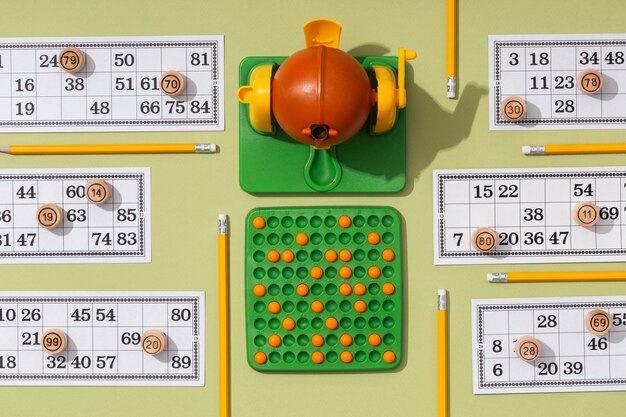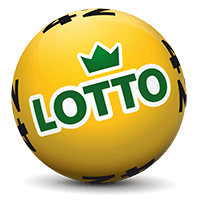
Lottery games have long fascinated people around the world, offering a blend of chance and excitement that captivates players and generates significant revenue for various causes. In Australia, the history of lottery games is a rich tapestry woven with tradition, innovation, and a unique cultural evolution. As one of the oldest forms of gambling in the country, Australian lotteries provide a fascinating glimpse into the social and economic landscape of different eras.
Australia’s journey with lottery games began in the early 19th century, a period marked by both colonial growth and experimentation with various forms of entertainment and revenue generation. The earliest lotteries were established with the intention of supporting public projects and charitable causes, reflecting a broader trend seen in many countries of using lottery proceeds for societal benefits.
Over the decades, these lottery games evolved, adapting to changing regulations and societal attitudes. From humble beginnings, they grew into complex and diverse systems, encompassing a wide range of formats and prize structures. The historical development of these games not only highlights their enduring popularity but also sheds light on the broader trends in Australian society, including shifts in public policy and economic priorities.
In this article, we will explore the origins and evolution of Australia’s oldest lottery games, examining their historical significance and the impact they have had on both the lottery industry and the wider community. Through this exploration, we aim to uncover how these games have mirrored and influenced Australian culture over the centuries.
History of Australia’s Oldest Lottery Games
Australia’s lottery games have a rich and fascinating history that dates back to the early 19th century. The evolution of these games not only reflects changes in society but also provides insights into the country’s cultural and economic developments. From humble beginnings to becoming a popular pastime, Australia’s oldest lottery games have left an indelible mark on the nation’s history.
In exploring the history of Australia’s oldest lottery games, we can trace the origins and transformations that have shaped them over the years. These games have evolved through various phases, adapting to new technologies and changes in public interest. This article delves into the key milestones and developments that have defined the lottery landscape in Australia.
Early Beginnings and Founding
The earliest recorded lottery in Australia can be traced back to the early 1800s, when lotteries were first introduced as a means to raise funds for public projects and charitable causes. These initial lotteries were often rudimentary, reflecting the simple nature of the period’s entertainment and fundraising methods.
Key Developments and Milestones
- 1832: The first official lottery was established to support the construction of important infrastructure, such as public buildings and roads.
- 1900s: Lotteries began to gain popularity and were more systematically regulated. The introduction of uniform rules across states helped standardize the games.
- 1960s: The modern era of lotteries saw the introduction of computer-based systems, improving the efficiency and integrity of the games.
Impact on Society and Culture
Australia’s lottery games have had a significant impact on society, providing not only entertainment but also contributing to various charitable causes. Over the decades, lotteries have supported numerous projects, from medical research to community services, reflecting the positive role they play in Australian life.
Modern Evolution and Popularity
In recent years, Australia’s lottery games have continued to evolve, incorporating advanced technology and innovative features. Online lotteries and instant win games have become increasingly popular, catering to a new generation of players and ensuring that lotteries remain a vibrant part of Australian culture.
Understanding the history of Australia’s oldest lottery games provides a deeper appreciation for their role in the country’s social fabric. As they continue to evolve, these games maintain their legacy and significance in Australian society.
The Origins of Australia’s Lottery Tradition
The tradition of lotteries in Australia dates back to the early days of European settlement. As settlers arrived on the continent, they brought with them various forms of gambling, including lotteries, which were a popular pastime in Europe. This introduction laid the groundwork for what would become a significant part of Australian culture and entertainment.
Initially, these early lotteries were simple affairs, often organized informally and lacking the structure of modern lottery systems. However, they provided a way for communities to engage in a shared activity while generating funds for local needs. Over time, the evolution of these lotteries mirrored broader social and economic changes in Australia.
Early Lottery Games in Australia
In the 19th century, formal lottery systems began to take shape as the Australian colonies developed and sought new revenue streams. The first official lottery was established in New South Wales in 1881, marking a significant milestone in the history of Australian lotteries.
As the popularity of lotteries grew, so did the sophistication of the games. Early lotteries often featured straightforward number draws, but they quickly evolved to include more complex formats and larger prizes. This evolution mirrored trends in other countries, reflecting a broader global fascination with lottery games.
Here are some key developments in the history of Australia’s oldest lottery games:
- 1881: The introduction of the first official lottery in New South Wales.
- 1901: The establishment of the Commonwealth of Australia, leading to more standardized lottery regulations across states.
- 1950s: The rise of national lotteries and the introduction of new formats to appeal to a broader audience.
- 1990s: The advent of online lottery games, transforming how Australians participate in lotteries.
Throughout its history, the Australian lottery system has continued to adapt and evolve, reflecting changes in technology, society, and regulations. Today, it remains a popular and integral part of Australian life, with millions of people participating in various lottery games each year.
Key Milestones in the Evolution of Australian Lotteries
The history of Australian lotteries is a fascinating journey through time, reflecting the nation’s evolving tastes and regulatory changes. From their humble beginnings to becoming a multi-billion-dollar industry, Australian lotteries have seen significant transformation. This evolution highlights key milestones that have shaped their development and popularity over the years.
Initially, lotteries in Australia began as informal and small-scale events. Over time, they have grown into sophisticated systems with various games and extensive participation. The milestones in this evolution showcase how lotteries have adapted to changing societal norms and technological advancements.
Key Milestones
- Early Beginnings (1800s): The origins of lotteries in Australia can be traced back to the early 19th century. Initially, these lotteries were often used to raise funds for public projects and community welfare.
- Introduction of Official State Lotteries (1930s): The 1930s marked the establishment of official state-run lotteries, which were introduced as a response to the economic pressures of the Great Depression. These lotteries aimed to provide financial relief and support public services.
- National Lottery Expansion (1960s): The 1960s saw the introduction of national lottery games, which were designed to unify various state lotteries under a single framework. This period marked significant growth in participation and prize structures.
- Technological Advancements (1980s-1990s): The advent of digital technology revolutionized the lottery industry, leading to the development of computer-based systems for ticket sales and draw operations. This innovation enhanced the efficiency and transparency of lottery operations.
- Introduction of Online Lotteries (2000s): The early 2000s witnessed the rise of online lottery platforms, which provided greater accessibility for players and expanded the reach of Australian lotteries beyond traditional retail channels.
- Modern Innovations (2010s-Present): In recent years, Australian lotteries have continued to evolve with the integration of mobile apps and digital technologies, offering new game formats and interactive experiences for players.
Each of these milestones represents a significant development in the history of Australian lotteries, reflecting broader changes in technology, society, and regulation. The ongoing evolution of these games ensures that they remain a dynamic and integral part of Australian culture.
Impact of Historical Lottery Games on Modern Australian Lotteries
The evolution of lottery games in Australia provides a fascinating glimpse into how cultural, economic, and technological changes have shaped the lottery industry. From the early days of colonial lotteries to the sophisticated systems of today, historical lottery games have left an indelible mark on the present state of Australian lotteries. Understanding this impact is crucial for appreciating the significance and development of contemporary lottery systems.
Modern Australian lotteries owe much to their historical predecessors. The lessons learned, regulations established, and innovations made in earlier lottery games have contributed to the efficient, transparent, and widely accessible lottery systems enjoyed today. This continuity highlights how historical practices and experiences inform current operations and regulations in the industry.
Key Impacts on Modern Australian Lotteries
- Regulatory Frameworks: Historical lotteries helped shape the regulatory frameworks that govern modern lotteries. Early experiences with fraud and mismanagement led to stricter regulations and oversight to ensure fairness and transparency in today’s lottery games.
- Technological Advancements: The transition from manual drawing methods to computerized systems reflects significant technological advancements. Historical lottery games provided a foundation for adopting new technologies that enhance the efficiency and security of lottery operations.
- Public Perception: The popularity and societal impact of early lotteries have influenced public perceptions of modern lotteries. The evolution of lotteries from fundraising tools to widely accepted entertainment options reflects changing attitudes towards gambling and its regulation.
- Philanthropic Contributions: Historical lotteries often funded public projects and charitable causes, setting a precedent for modern lotteries, which continue to support various community initiatives and social programs.
In conclusion, the impact of historical lottery games on modern Australian lotteries is profound and multifaceted. The evolution from rudimentary colonial lotteries to the sophisticated systems in place today illustrates a continuous process of adaptation and improvement. By examining this historical trajectory, we gain valuable insights into the development of contemporary lottery practices and their broader societal implications.
